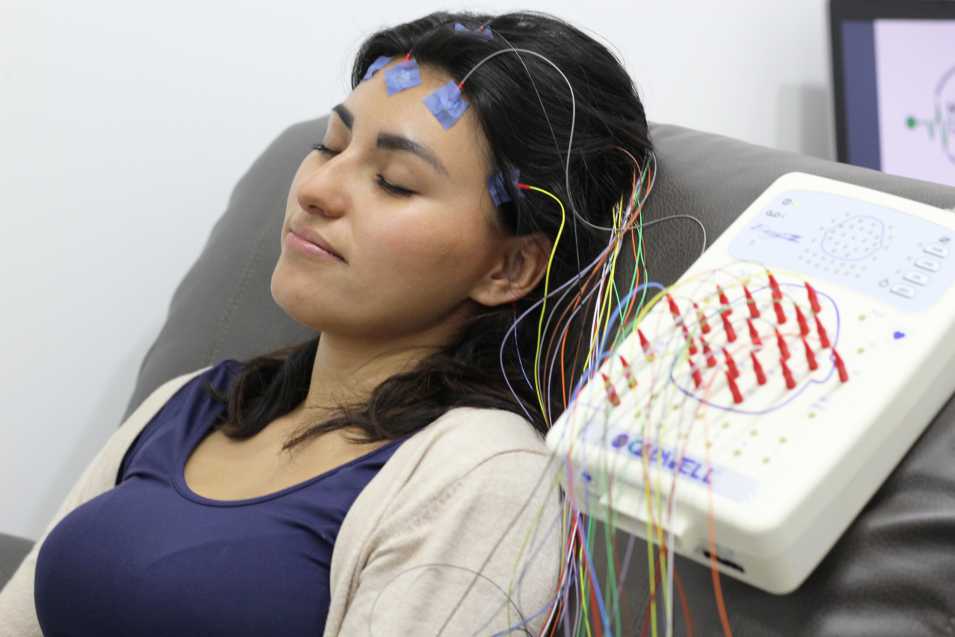Can the brain be rewired to recover from addiction? Yes, let’s examine together how to do this. What is the typical timeline for this rewiring process, and what are the essential qualities of patience, how long to rewire brain from addiction and perseverance that are crucial to successful brain rewiring? The answers to all your questions are in our article.
The Process Of Brain Rewiring
Brain rewiring refers to the process of creating new neural pathways in the brain to replace old ones, particularly in the context of overcoming addiction. It is a complex and fascinating phenomenon that requires patience, persistence, and professional guidance.
The process of rewiring the brain from addiction can vary in length depending on several factors, including the individual’s level of addiction, the substances or behaviors involved, and their commitment to the process.
How long to rewire brain from addiction?
- It is important to note that there is no fixed duration for rewiring the brain from addiction as it is different for every individual. Some people may experience noticeable changes in their neural pathways within a few months, while others may require a longer time to achieve the same results.
- Research has shown that the brain has a remarkable capacity for change, known as neuroplasticity. This means that with consistent effort and the right techniques, the brain can rewire itself to overcome addiction and create new, healthier habits.
- The process of brain rewiring involves breaking old patterns of thought and behavior and replacing them with new ones. This requires rewiring the reward systems in the brain, which have been affected by addiction. It takes time and practice for the brain to adapt to these new patterns and to establish new neural connections.
The importance of patience and persistence in brain rewiring
In the journey of brain rewiring, patience and persistence are crucial factors. It is important to understand that the brain has been conditioned by addiction over a period of time, and therefore, it will take consistent effort and time to rewire it. Developing new neural pathways and overcoming addiction-related thoughts and cravings is not an overnight process.
Effective techniques to speed up brain rewiring
- While rewiring the brain from addiction can be a lengthy process, there are techniques that can potentially speed up the rewiring process.
- Mindfulness and meditation have been found to be helpful in rewiring the brain. These practices can reduce stress and anxiety, promote self-awareness, and enhance the brain’s ability to form new neural connections.
- Seeking professional help is another effective way to expedite the brain rewiring process. Addiction counselors, therapists, and support groups provide individuals with guidance, support, and strategies to rewire their brains more effectively.
- Engaging in activities that stimulate the brain, such as learning a new skill or engaging in creative pursuits, can also accelerate the rewiring process by promoting neuroplasticity.
Related Article: Is Ketamine Addictive When Used for Depression?
Seeking professional help for faster brain rewiring
For individuals who are seeking faster results in rewiring their brain from addiction, seeking professional help is highly recommended. Addiction specialists and therapists are equipped with the knowledge and expertise to guide individuals through the rewiring process.
In addition to their expertise, professionals can provide a supportive environment where individuals can discuss their struggles, receive personalized strategies for rewiring the brain, and gain insights from others who have gone through similar experiences.
Professional help also offers a structured approach to the rewiring process, ensuring that individuals have a clear roadmap and actionable steps to follow. This can greatly enhance the efficiency and effectiveness of brain rewiring.
| Pros of Seeking Professional Help | Cons of Seeking Professional Help |
|---|---|
| – Guidance from experts in the field | – Cost associated with professional services |
| – Access to a supportive community | – Limited availability of specialized professionals |
| – Personalized strategies and tools for rewiring | – Potential differences in treatment approaches |

Typical Timeline For Rewiring The Brain From Addiction
When it comes to rewiring the brain from addiction, many individuals are eager to know how long the process will take. While there is no one-size-fits-all answer, understanding a typical timeline can provide valuable insight into what to expect throughout the journey of recovery.
It is important to note that the rewiring process is complex and multifaceted, involving various factors such as the type of addiction, individual characteristics, and the extent of neural adaptations. The timeline for brain rewiring from addiction can vary greatly from person to person, but there are general patterns and stages that can guide our expectations.
In the initial stages of overcoming addiction, the brain goes through a process known as detoxification. This typically lasts for a period of several days to a few weeks, during which the body eliminates the toxins associated with substance abuse. Symptoms of withdrawal may occur during this time, as the brain adjusts to the absence of the addictive substance.
These symptoms can vary in severity and duration depending on the substance and the individual, but they generally subside over time as the body and brain adapt.
After the detoxification phase, the brain enters a stage of stabilization. This is when the brain begins to repair and restore its normal functionality. It is important to understand that rewiring the brain is not simply a matter of removing the addiction; it also involves replacing old neural pathways with healthier ones.
This phase of stabilization can last anywhere from a few weeks to several months, depending on the individual and the extent of the addiction.
| Stage | Duration |
|---|---|
| Detoxification | Several days to a few weeks |
| Stabilization | A few weeks to several months |
Following the stabilization stage, the brain enters a phase of consolidation. This is when new neural connections are reinforced and strengthened. It is during this phase that the brain begins to adapt to a life without the addictive substance and learns to derive pleasure and reward from healthier activities. The duration of this consolidation phase can vary, but it is typically several months to a year.
It is important to emphasize that the timeline for brain rewiring is not a linear process. Each individual will progress at their own pace, and setbacks or challenges may arise along the way. Patience and persistence are key in this journey of reclaiming a healthier brain.
Seeking professional help and support can also expedite the rewiring process, as trained experts can provide guidance, therapy, and interventions tailored to an individual’s specific needs.
While a specific timeline for rewiring the brain from addiction cannot be set in stone, understanding the typical stages can offer insights into the process.
Detoxification, stabilization, and consolidation are integral phases of brain rewiring, each with its own duration and challenges. Patience, persistence, and professional support are crucial components in achieving a successful and sustainable recovery.
The Importance Of Patience And Persistence In Brain Rewiring
When it comes to rewiring the brain from addiction, patience and persistence are key factors that cannot be underestimated. Addiction is a complex neurological condition that requires time and effort to overcome.
The process of rewiring the brain involves forming new neural pathways and undoing the entrenched patterns associated with addiction. This cannot happen overnight, but with the right approach and mindset, significant progress can be made.
One of the most challenging aspects of rewiring the brain from addiction is the length of time it takes. How long to rewire brain from addiction can vary from person to person, depending on factors such as the severity and duration of the addiction, individual circumstances, and the effectiveness of the chosen treatment methods.
Research suggests that it can take anywhere from several months to several years for the brain to fully rewire itself. This highlights the importance of patience and perseverance throughout the journey to recovery.
It is crucial to understand that the brain rewiring process is not linear and may involve setbacks and relapses. It is unrealistic to expect instant results or a smooth progression without any obstacles.
Addiction rewiring often involves breaking deeply ingrained habits and addressing underlying psychological and emotional issues. This can be a challenging and complex process that requires patience and commitment.
- Engaging in regular therapy sessions
- Participating in support groups or 12-step programs
- Practicing mindfulness and meditation
In addition to these self-help techniques, seeking professional help can greatly enhance the speed and effectiveness of brain rewiring. A qualified therapist or counselor specialized in addiction can provide valuable guidance, support, and evidence-based treatments. They have the knowledge and experience to tailor treatment plans to individual needs and can help address any underlying issues that may hinder the rewiring process.
| Benefits of Patience and Persistence in Brain Rewiring |
|---|
| 1. Increased likelihood of long-term success in overcoming addiction. |
| 2. Improved ability to handle setbacks and relapses without giving up. |
| 3. Enhanced self-discipline and self-control, which are important for maintaining sobriety. |
| 4. Creation of new neural pathways that support healthier habits and behaviors. |
| 5. Development of resilience and determination to overcome challenges. |
In summary, the importance of patience and persistence in brain rewiring cannot be emphasized enough. Overcoming addiction and rewiring the brain is a journey that requires time, effort, and dedication. There will be ups and downs throughout the process, but staying patient and persistent will increase the likelihood of long-term success.
Seeking professional help and utilizing effective techniques can further speed up the rewiring process. Remember, your brain has incredible plasticity and the ability to change, so be patient with yourself and trust in the rewiring journey.
Related Article: 12 Core Functions of Addiction Counseling
